News
European States’ Calls For Sending Ground Force to Ukraine Rapidly Gain Momentum: Russia Issues Warnings
Political leaders in Western countries have from mid-February increasingly raised the possibility of an overt military intervention in the Russian-Ukrainian War through the dispatch of ground force contingents, raising concerns in both Russia and the West regarding the possibility of an escalation into a larger conflict between Moscow and the Western Bloc. French President Emmanuel Macron on February 26 stated that his government “will do everything necessary to prevent Russia from winning this war,” and that deployments of ground forces were not ruled out. He highlighted at the time that much as other European states had ruled out provision of assets such as cruise missiles and fighter planes to Ukraine, only to later alter their positions, so too did he believe it was highly possible that they would come to reconsider overtly deploying ground forces in the country. This statement followed serious Ukrainian setbacks and continued loss of territory as the country’s fighting capabilities rapidly diminish.
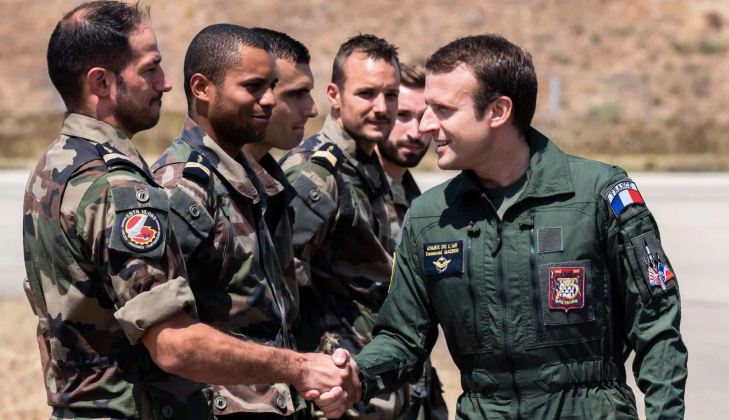
Leading French newspaper Le Monde subsequently reported that ground force deployments being considered missions could involve supporting Ukrainian air defence networks, although their most important role would be to impose “strategic dilemmas” for Moscow. They could include both “conventional units” and special forces, acting as effective ‘political shields’ for Ukrainian targets. It highlighted that this could be key to protecting sensitive targets related to the upcoming delivery of F-16 fighters to the country. A separate report from Le Monde subsequently highlighted that the French government had begun considering options for ground force deployments to Ukraine from June 2023. The possibility of launching such an intervention was raised at a defence council meeting in the Elysee Palace that month, closely coinciding with the initiation of mass Ukrainian offensives against Russian positions.
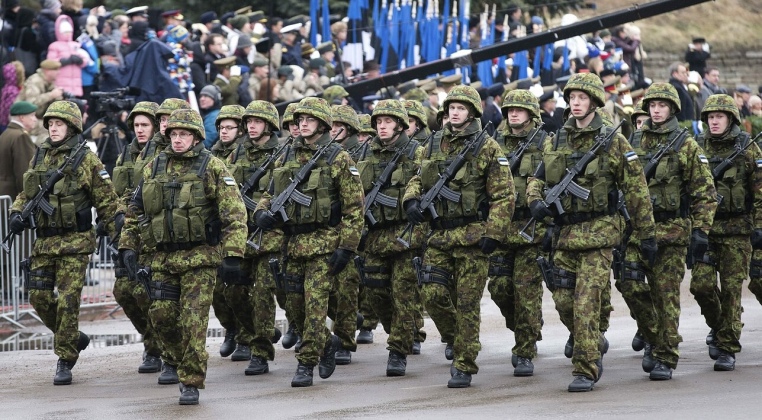
Following reports of possible French deployments, Estonian Prime Minister Kaja Kallas on February 29 stressed that “we should have all options on the table. What more can we do in order to really help Ukraine win?” Subsequently on March 14 she stated that she could not guarantee parliament that ground force contingents would not be deployed to Ukraine, stressing that “circumstances may change.” Polish Foreign Minister Radoslaw Sikorski similarly that the deployment of NATO ground contingents to Ukraine was “not unthinkable,” with Lithuanian Foreign Minister Gabrielius Landsbergis voicing similar support. The Finnish Foreign Ministry similarly supported the French position, with Foreign Minister Elina Valtonen stating: “it’s important that we not rule everything out for the long term, because we never know how serious the situation becomes.” She claimed the sponsors of the Ukrainian war effort “could do so much more” in terms of arming its forces, slamming the United States for failing to provide sufficient new aid. Finland’s annual aid to Ukraine amounted to more than 0.6 percent of the country’s entire GDP.
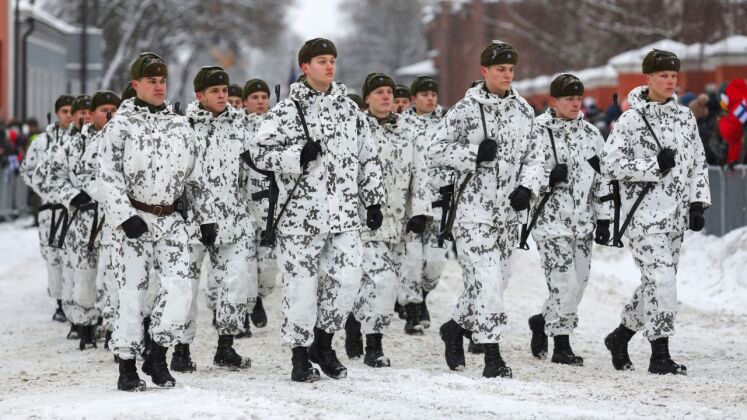
Regarding the deployment of Western personnel in Ukraine, Kremlin spokesman Dmitry Peskov stated on March 11 that Russian intelligence services had information on the presence of NATO military personnel in Ukraine. “We are following this most closely, you know that our relevant services have long had information that one way or another, people who call themselves advisers and who are directly related to NATO are actually on the territory of Ukraine,” he stated. This followed a statement the previous day by Polish Foreign Minister Radoslaw Sikorski confirmed that NATO personnel were already operating in Ukraine, although refusing to disclose which states sent their forces. Such revelations were provided, however, by German Chancellor Olaf Scholz, who confirmed that British personnel were on the ground in the country helping Ukrainian forces to launch cruise missile strikes against Russian targets – one of multiple more complex military assets which Ukraine was considered incapable of absorbing without the presence of foreign personnel. Russian Foreign Ministry spokeswoman Maria Zakharova commented on the Polish minister’s statement regarding NATO personnel in Ukraine that the Western states: “couldn’t hide it any longer.”
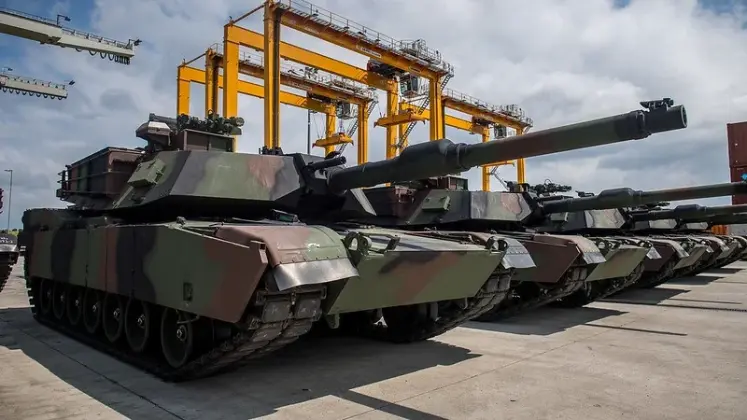
Regarding the possibility of Western ground force contingents entering Ukraine, Russian President Vladimir Putin on March 13 commented regarding the intentions of the Polish government specifically: “If Polish troops enter the territory of Ukraine in order to, as they say, secure the Ukrainian-Belarusian border, for example, or in some other places to free up Ukrainian rear military units to participate in hostilities on the front line, then I think that Polish troops will never leave.” The Russian leader claimed that Polish officials “dream of returning “those lands that they consider historically their own… They certainly want them back. So if official Polish units enter there, they are unlikely to leave.”
Despite Washington taking a far softer line on the conflict than many European states, Putin commented on the possible deployment of U.S. ground force contingents to Ukraine. “The United States announced that they are not going to send troops. We know what American troops on Russian territory are – they are interventionists. We will treat it this way, even if they appear on the territory of Ukraine. They understand it… Now they are present both directly and in the form of advisers, they are present in the form of foreign mercenaries and are suffering losses. But if we are talking about official military contingents of foreign states, then I am sure this will not change the situation on the battlefield,” he observed. Russia would treat any U.S. troops sent to Ukraine as invaders, with Washington being well aware of that, the Russian leader claimed.
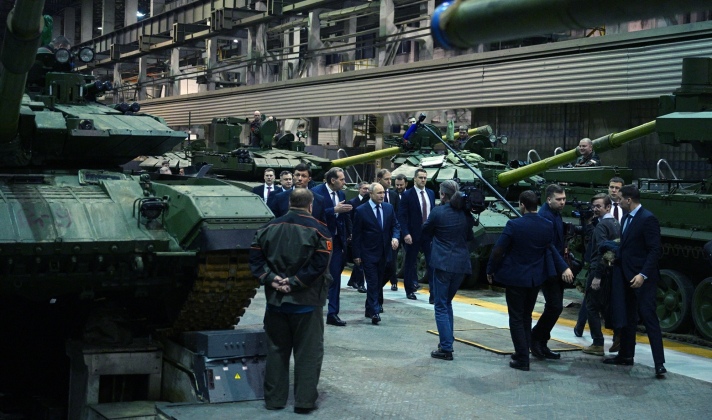
Western forces have already been widely deployed to Ukraine, with the early stages of these operations at the crux of the war effort reported by the New York Times in June 2022, when it referred to “a stealthy network of commandos and spies rushing to provide weapons, intelligence and training… C.I.A. personnel have continued to operate in the country secretly, mostly in the capital, Kiev, directing much of the massive amounts of intelligence the United States is sharing with Ukrainian forces.” The “signs of their stealthy logistics, training and intelligence support are tangible on the battlefield,” the Times observed. “Commandos from other NATO countries, including Britain, France, Canada and Lithuania, also have been working inside Ukraine… training and advising Ukrainian troops and providing an on-the-ground conduit for weapons and other aid,” it added, stressing the sheer “scale of the secretive effort to assist Ukraine that is underway.” This has been supplemented by massive deployments of supporting assets outside Ukraine, including airborne early warning and control and satellite systems providing intelligence, further satellites providing targeting data for Western supplied and operated precision guided weapons, and F-35 fighters collecting electronic data on Russian positions, in particular its surface to air missile assets, from outside Ukraine’s borders.
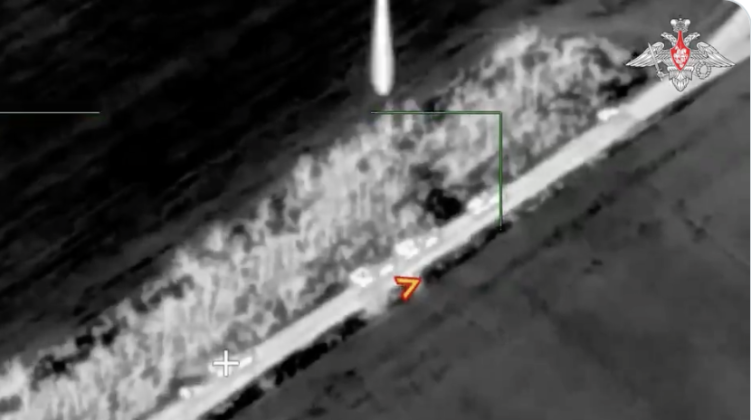
One of the most notable subsequent revelations that year was that hundreds of British Royal Marines had been deployed for combat operations near the frontlines from the conflict’s initial weeks, which was confirmed by senior British military officials in December 2022. New revelations regarding Western operations have continued to emerge since. With all these operations having been covert, however, an overt deployment of Western forces to Ukraine would pose new challenges to Russia. Targeting such forces would place Moscow at risk of retaliation and escalation to a wider conflict with the Western Bloc states, with knowledge of this potentially allowing Western forces to hold large areas of Ukraine off limits to Russian forces. This would hardly be unprecedented, with U.S, Norwegian, Turkish and other NATO forces having occupied large areas of Syria from the mid-2010s at a time when Syrian and allied Russian forces were rapidly advancing against NATO-backed insurgents, preventing them from retaking the entirety of the country. Unlike in Syria, where the presence of Western and Turkish forces is considered illegal and is strongly opposed by Damascus, the Ukrainian government has repeatedly called for a larger Western military intervention to bolster its forces on the ground. With Ukraine being much more of a core interest for Russia than Syria had been, however, as Russian officials have repeatedly stated that the country is considered intrinsically a part of Russia and the conflict a civil war rather than a foreign affair, Moscow is expected likely take much greater risks to assure its interests there including targeting any and all foreign forces deployed there.












